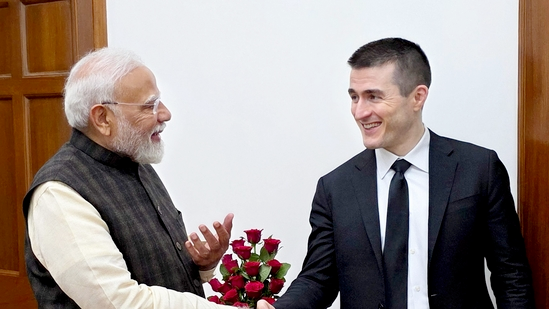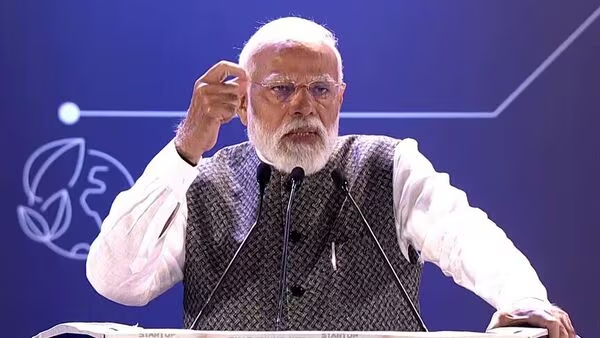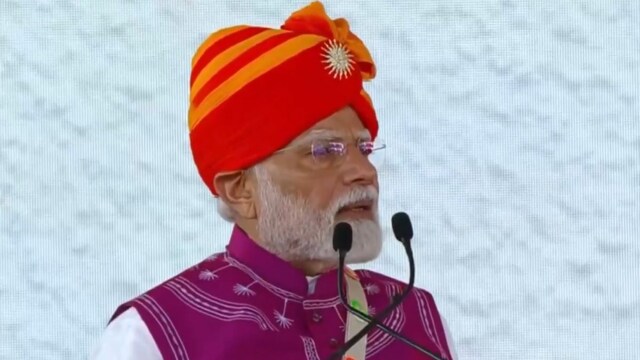
Prime Minister Narendra Modi, in a bold and decisive address, lambasted Pakistan for its persistent support of terrorism, declaring that the nation’s policies are driven solely by enmity towards India. His remarks come at a critical juncture as India intensifies its efforts to rally global support against terrorism. Modi’s statement underlines India’s growing leadership in addressing international security concerns and underscores the challenges posed by its neighboring country’s actions.
A Stark Message Amidst Rising Tensions
The Prime Minister’s speech highlighted the continuous threats posed by terrorism emanating from Pakistan. With clarity and determination, Modi accused Pakistan of using terror as a state policy. “Their only goal is enmity with India,” he stated, emphasizing the futility of such hostility in the face of India’s resilient growth and global partnerships.
This direct condemnation was delivered as India strengthens its diplomatic outreach to isolate nations that harbor and support terrorist networks. The Prime Minister’s remarks also resonate with the international community’s growing impatience towards nations that fail to address the menace of terrorism.
Modi’s tone reflected both frustration and resolve. Frustration at the continued aggression from Pakistan and resolve to counteract these actions with strategic and diplomatic measures. “India is not a nation that succumbs to fear,” Modi asserted, “We are a nation that responds with strength and unity.”
India’s Strategic Diplomacy
Over the years, India has adopted a multi-faceted approach to counter terrorism. Modi’s speech comes against the backdrop of sustained efforts to build international coalitions and secure global recognition of terrorism as a universal threat. He reiterated India’s stance on the importance of dismantling terror networks and holding states accountable for their support to such activities.
India’s foreign policy under Modi has consistently highlighted the need for collaborative action against terrorism. From engaging with global forums like the United Nations to fostering bilateral ties, the country has positioned itself as a pivotal player in the fight against extremism. Recent diplomatic engagements have seen India taking the lead in advocating for stringent anti-terror mechanisms and creating consensus among nations for shared responsibilities.
India’s diplomatic strategy includes leveraging its growing economic and geopolitical clout. Modi emphasized the importance of global unity, stating, “Terrorism knows no boundaries, and therefore, our response must also transcend borders.” This message underscores India’s role in uniting nations across continents to address the common enemy of terror.
Pakistan’s Role in Regional Instability
During his address, Modi drew attention to the destabilizing role Pakistan plays in South Asia. “While the world moves forward, some countries remain trapped in a mindset of division and destruction,” he remarked, a veiled reference to Pakistan’s historical and ongoing involvement in cross-border terrorism.
He also pointed out how Pakistan’s policies have not only harmed its neighbors but have also led to internal chaos. The country’s economic struggles, political instability, and rising extremist influences are often linked to its failure to curb terror activities. Modi’s speech delved into how Pakistan’s support for terrorism is a self-defeating strategy that has isolated it globally.
Pakistan’s reluctance to take meaningful action against terror outfits operating within its borders has drawn criticism from international allies and organizations. Modi’s words echoed the sentiments of many global leaders who have repeatedly called for accountability. “Terrorism cannot be justified under any pretext,” Modi affirmed.
Rallying Global Support
India’s efforts to address terrorism are not confined to rhetoric. The country has consistently worked to unite the global community against this shared threat. Modi’s speech comes at a time when India’s leadership has been instrumental in shaping international consensus on combating terrorism. From hosting global conferences to advocating for strict international frameworks, India’s proactive measures have earned widespread support.
The Prime Minister emphasized the importance of recognizing and addressing state-sponsored terrorism. He urged global powers to take decisive actions, stating that the fight against terrorism requires a united front and unwavering commitment.

India’s approach includes pushing for comprehensive sanctions against terror financiers and supporters. Modi highlighted the success of collaborative efforts such as the Financial Action Task Force (FATF), which has placed Pakistan on its “grey list” for failing to curb terror financing. “This is a global acknowledgment of what India has been saying for years,” Modi remarked.
A Vision for Peace and Security
Modi’s address was not only a critique of Pakistan but also a call to action for peace and stability. He outlined India’s vision of a world free from the shadows of terror. The Prime Minister stressed the need for education, economic development, and inclusive governance as key tools to counter radicalization and extremism.
India’s domestic policies have also reflected this vision. Initiatives aimed at empowering marginalized communities, creating job opportunities, and enhancing access to education have been critical in addressing the root causes of extremism. Modi pointed out how these efforts are part of a larger strategy to foster societal resilience against divisive ideologies.
Modi also spoke about India’s humanitarian role in aiding conflict-ridden regions. From providing medical assistance to refugees to supporting reconstruction efforts in war-torn areas, India has consistently demonstrated its commitment to global peace.
Strengthening International Partnerships
The Prime Minister’s speech also highlighted the importance of strong international partnerships in combating terrorism. India has deepened its ties with countries across the world, forging alliances that prioritize security and stability. Modi referred to the recent Quad meetings and bilateral discussions with nations like the United States, Japan, and Australia as examples of India’s proactive diplomacy.
The Prime Minister underscored the importance of intelligence sharing and joint military exercises in countering terror threats. He noted that India’s partnerships extend beyond traditional allies, reaching out to nations in Africa, Latin America, and Southeast Asia to build a comprehensive global network against terror.
Pakistan’s Response and International Backlash
Modi’s remarks have inevitably drawn reactions from Pakistan, which has often sought to deflect criticism by accusing India of interference. However, the global narrative has increasingly favored India’s stance, with many nations openly criticizing Pakistan’s inability to address its role in fostering terrorism.
Modi’s speech pointed out the paradox of Pakistan’s stance: a nation that calls for dialogue but refuses to dismantle terror networks. “Dialogue and terror cannot coexist,” Modi stated emphatically, reiterating India’s policy of zero tolerance for terrorism.
The Role of Indian Citizens
Modi’s address also had a message for the citizens of India. He emphasized the role of unity and vigilance in countering terrorism. “Every Indian has a role to play in safeguarding our nation,” Modi declared. He urged citizens to remain informed, report suspicious activities, and support the government’s efforts to maintain national security.
The Prime Minister praised the resilience of Indians who have faced the brunt of terrorism but continue to stand united. “Our strength lies in our diversity, and our diversity is what the enemies of peace fear the most,” he said.
Conclusion
Prime Minister Narendra Modi’s condemnation of Pakistan’s support for terrorism is a reaffirmation of India’s steadfast commitment to global peace and security. As the nation continues to champion the fight against extremism, Modi’s leadership underscores the urgency of international collaboration to combat terrorism and foster a future of harmony and progress.
Modi’s message was not just a denunciation of Pakistan’s actions but a call to the world to unite against the scourge of terrorism. His words reflect India’s growing role as a global leader and its unwavering resolve to create a safer, more peaceful world for future generations.

